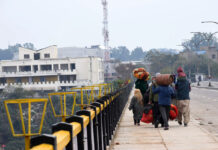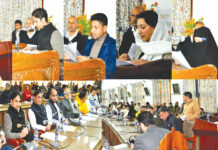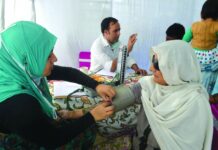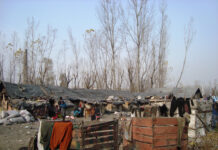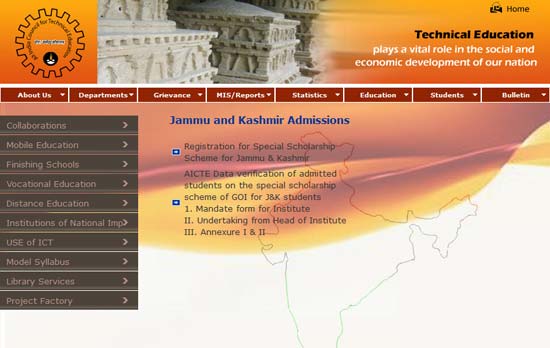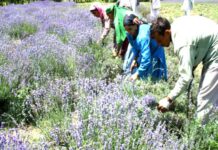The UN has recognised APDP and released a grant to it to help the families of the people subjected to enforced disappearances in Kashmir. Aliya Bashir reports.
Seventeen years into the struggle for locating their loved ones, the United Nations has decided to recognise and financially assist Association of Parents of Disappeared Persons (APDP) – an organisation of families of the victims of enforced disappearances in Kashmir.
 The UN recognition came on Nov 27, 2008, when Parveena Ahangar attended the 86th Session of United Nations Working Group on Involuntary Enforced Disappearances (WGIED) at Geneva. And this month released a grant for financial assistance to the families of the disappeared persons.
The UN recognition came on Nov 27, 2008, when Parveena Ahangar attended the 86th Session of United Nations Working Group on Involuntary Enforced Disappearances (WGIED) at Geneva. And this month released a grant for financial assistance to the families of the disappeared persons.
The United Nations Commission on Human Rights established the Working Group in 1980 to assist families of the disappeared persons in conflict zones. Parveena Ahangar made submissions to the UN Working Group on enforced disappearances in Kashmir on behalf of APDP. The written submissions by APDP consisted of extensive documentation of six individual cases besides a general submission on the issue of enforced disappearances in Kashmir. She also discussed the various features of the laws which hamper the victim families in seeking justice.
“We discussed threadbare the overall status of disappearances in Kashmir. The working group was ready to help the families of disappeared persons and the torture victims of past 20 years of perpetual strife,” Parveena said. Soon after the meet a committee was set up, which decided to send a delegation to Kashmir to assess the situation of families of disappeared persons. At least for one year the team was denied visa by the authorities and finally one of the member in the UN team was allowed to visit the valley for one day.
On 11 December 2009, he came to Kashmir and interacted with the parents of the disappeared persons and studied the proposal of the APDP. “We assured him that we will identify the families of all the disappeared persons from all cross-sections of the state to provide them with all possible assistance. Later the UN sanctioned us the grant,” she said.
The APDP has received the first instalment of the grant. The APDP is conducting a survey in all districts of the state with the help of 300 victim group. The prime focus of the survey will be to identify the actual number of disappeared persons and the socio-economic conditions of the victims’ families.
The United Nations Voluntary Fund for the victims of torture (UNVFVT) will cater to the medical, educational, psycho-social, legal and other requirements to the families in the absence of their disappeared persons and the torture victims.
“Last month we arranged pacemaker for a victim family and in Handwara we arranged marriage of five girls of victim families. Even when we cannot help everyone, our motive is to help all those families who are in dire need,” Parveena said. “There are thousands of families whose dear ones are missing in custody. We need to know the exact number and their position and accordingly the grant will be distributed among them,” she added.
To ensure a result-oriented survey, APDP has decided to conduct a thorough survey in each district with the help of its members (persons whose family members were subjected to enforced disappearance).  They will identify qualified field workers for the job and work with them. “Our workers will interact with the families and gauge the various requirements through filling of forms which in the set format for our survey,” the APDP chairperson said. “Through this interactive medium we can have efficient and reasonable dissemination of the aid.”
They will identify qualified field workers for the job and work with them. “Our workers will interact with the families and gauge the various requirements through filling of forms which in the set format for our survey,” the APDP chairperson said. “Through this interactive medium we can have efficient and reasonable dissemination of the aid.”
The APDP came into existence in 1991 when Parveen’s 19-year-old son, Javaid Ahangar was picked up by security forces for ‘interrogation’ and that was the last time his family saw him. This incident marked the beginning of her long and continuing battle to trace her missing son.
In 1994, a group of similarly affected families formed the APDP, which has around 300 members. The APDP claims that more than 10,000 persons have disappeared in the custody of various state agencies since 1990.
APDP is a member of the Asian Federation against Involuntary Disappearances (AFAD) which was launched in Philippines in 1998 and has participated in its meetings and conferences in Phillipines, Indonesia and Thailand. On the 10th of every month the association holds a sit-in protest in Srinagar against the enforced disappearances to remember their loved ones and extend solidarity to each other. But, due to the four months unrest in the sit-ins were suspended.
To express solidarity APDP visited the three victim families of Machhil fake encounter at Nadihal in North Kashmir. “Although couldn’t hold any sit-in owing to the fresh unrest in the valley. But our struggle never stopped even for a single day,” she said. “The family members of Nadihal fake encounter live in very destitute condition and the authorities did not provide them any help. So they also joined us and participated in sit-in demonstration to seek justice on 10th of this November.”


